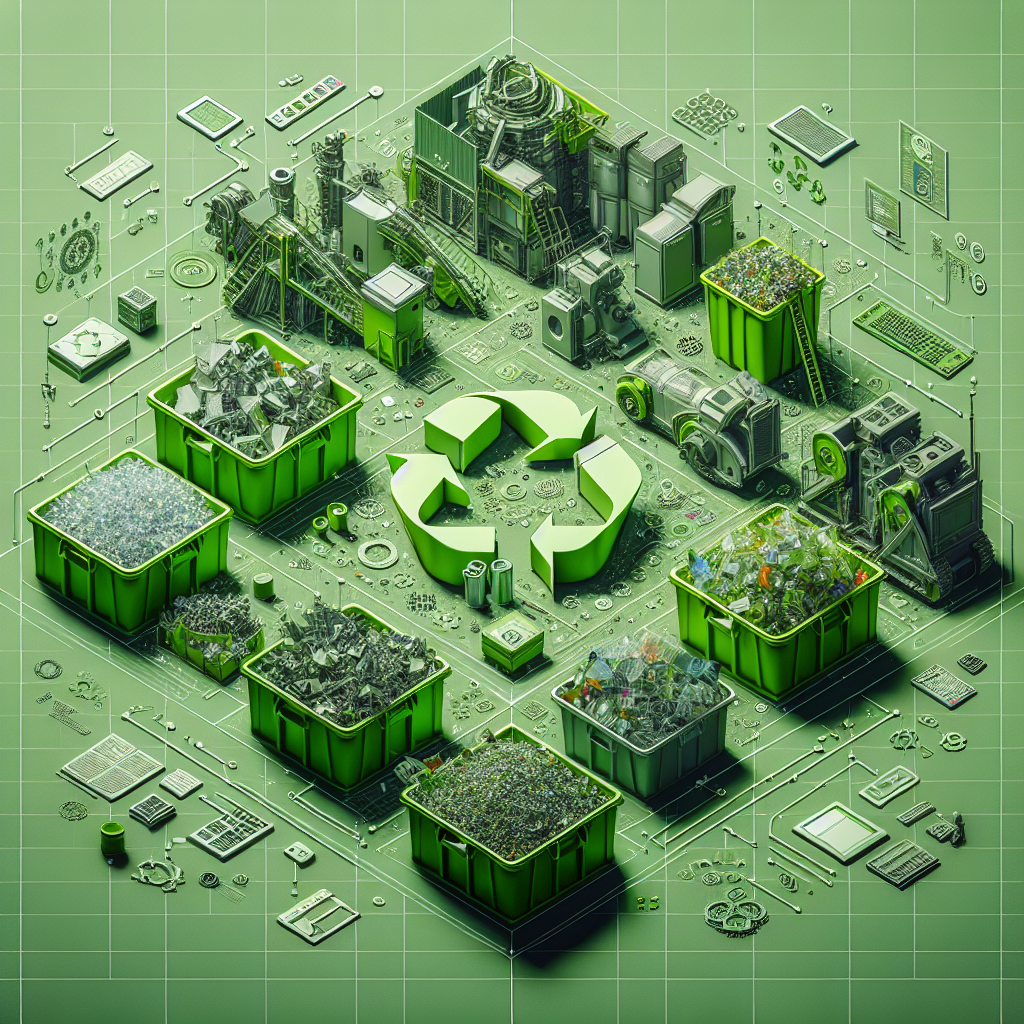Blog Ecobraz Eigre

What are the technological trends for large-scale recycling?
Introduction to large-scale recycling
Technological advances have been key to optimizing large-scale recycling processes, making them more efficient, economical and sustainable. The growing demand for solutions that minimize environmental impact is driving innovations that range from the collection to the reuse of materials. Below, we explore the main technological trends that are revolutionizing the recycling sector.
Automation and robotics in waste sorting
One of the main innovations is the use of automated systems and robots for waste sorting. Equipped with optical sensors, artificial intelligence and machine learning, these systems identify and separate recyclable materials much more accurately and quickly than traditional methods. This reduces operating costs and minimizes human error, allowing for large-scale processing.
Artificial intelligence and machine learning
Artificial intelligence (AI) applied to recycling leverages the ability to analyse large volumes of data to identify patterns and improve processes. Machine learning algorithms can optimize collection routes, predict demand and classify materials. In addition, AI helps with predictive maintenance of equipment, ensuring greater operational efficiency.
Advanced sensor technology
State-of-the-art sensors, such as spectroscopic sensors, infrared sensors and radars, enable detailed analysis of the composition of waste. This technology facilitates the automatic separation of complex materials, such as mixed plastics and metals, enabling a more committed and intelligent reuse of resources.
Chemical recycling and upcycling processes
In addition to traditional mechanical recycling, chemical recycling is gaining prominence as it enables materials to be broken down into their basic components to create high-purity raw materials. At the same time, upcycling processes transform waste into higher-value products, promoting a circular economy and reducing the need to extract natural resources.
Blockchain for traceability and transparency
The application of blockchain technology offers an innovative solution for traceability in the life cycle of recyclable materials. This guarantees transparency, security and reliability in the processes, facilitating quality control and the fight against illegal or inappropriate recycling, as well as fostering the trust of the stakeholders involved.
Integrated waste management systems
Digital platforms integrated with IoT (Internet of Things) monitor the flow of waste in real time, from collection to processing. These solutions make it possible to optimize logistics, efficiently manage resources and mitigate environmental impacts, promoting smarter and more sustainable large-scale recycling.
Conclusion
Technological trends for large-scale recycling are transforming the sector, making processes more agile, precise and environmentally responsible. Automation, artificial intelligence, advanced sensors, chemical recycling, blockchain and integrated systems contribute to a future where the reuse of materials is maximized, driving the circular economy and preserving the planet.

Deixe um comentário
O seu endereço de e-mail não será publicado. Campos obrigatórios são marcados com *